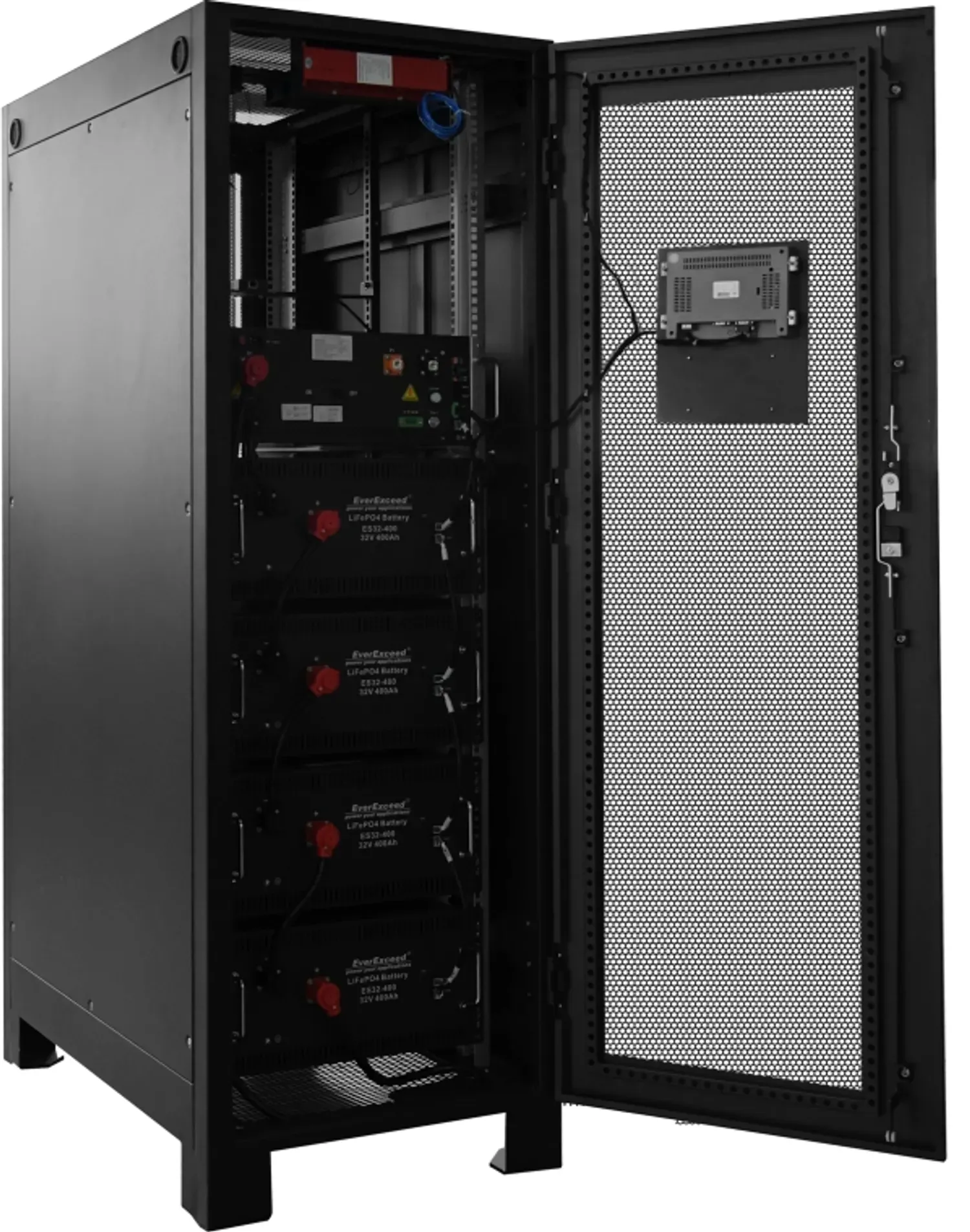
Get a Quote
What Is the Life Expectancy of a UPS Lithium Battery?
Understanding UPS Lithium Batteries
UPS lithium batteries serve as essential components within UPS systems, providing reliable backup power during electrical interruptions. These batteries are specifically designed to store and deliver power efficiently, ensuring uninterrupted operations for critical equipment and systems.
Compared to traditional battery types used in UPS systems, such as lead-acid batteries, UPS lithium batteries offer several advantages. They typically have a longer lifespan, higher energy density, and faster recharge times, making them ideal for applications where reliability and performance are paramount.
Factors Affecting the Life Expectancy of UPS Lithium Batteries
The lifespan of UPS lithium batteries can be influenced by various factors:
- Cycle Life and Calendar Life: UPS lithium batteries have a limited number of charge and discharge cycles, known as their cycle life. Additionally, their calendar life, or the duration they can remain functional regardless of usage, also affects their longevity.
- Depth of Discharge: The extent to which UPS lithium batteries are discharged during operation impacts their lifespan. Deeper discharge cycles can accelerate battery degradation, reducing overall longevity.
- Operating Temperature: UPS lithium batteries perform optimally within a specific temperature range. High temperatures can accelerate chemical reactions within the battery, leading to premature aging and decreased performance. Proper ventilation and temperature management are crucial for extending battery life.
- Charge and Discharge Management: Proper charging and discharging practices are essential for maintaining UPS lithium battery health. Overcharging or discharging beyond recommended levels can degrade battery performance and shorten lifespan. Implementing effective charge and discharge management strategies can help maximize battery longevity.
Maintenance and Care Tips for UPS Lithium Batteries
Proper maintenance is key to maximizing the lifespan and performance of UPS lithium batteries. Here are some essential tips:
- Charging Recommendations: Follow manufacturer guidelines for charging UPS lithium batteries to avoid overcharging or undercharging, which can degrade battery health over time.
- Avoiding Common Mistakes: Be mindful of common mistakes such as exposing batteries to extreme temperatures, over-discharging them, or using incompatible chargers. These practices can shorten battery lifespan and compromise performance.
- Monitoring Battery Health: Regularly monitor the health of UPS lithium batteries through built-in diagnostics or external tools. Perform routine maintenance checks to identify any issues early on and address them promptly.
- Tips for Extending Battery Life: Implement strategies to extend the life of UPS lithium batteries, such as limiting depth of discharge, optimizing operating temperature, and avoiding heavy loads. These practices can help prolong battery lifespan and ensure reliable performance.
Recognizing Signs for Battery Replacement
It's essential to recognize signs indicating the need for UPS lithium battery replacement to avoid unexpected downtime. Look out for the following indicators:
- Declining Battery Health: Monitor battery health indicators such as capacity, voltage, and internal resistance. A significant decline in these parameters may signal battery degradation and the need for replacement.
- Timing for Replacement: Understand when it's time to replace UPS lithium batteries based on their age, usage patterns, and performance metrics. Proactively replacing batteries before they fail can prevent disruptions to critical operations.
- Importance of Proactive Replacement: Prioritize proactive battery replacement to maintain uninterrupted operations. Waiting until batteries fail can lead to costly downtime and potential damage to equipment. Regularly assess battery health and schedule replacements as needed to ensure continuous reliability.
Selecting the Right UPS Lithium Battery and Vendor
Choosing the right UPS lithium battery and vendor is crucial for ensuring reliable backup power. Consider the following factors:
- Considerations for Choosing UPS Lithium Batteries: Evaluate factors such as battery capacity, voltage compatibility, and cycle life to meet your specific application requirements. Additionally, consider factors like energy density, recharge times, and warranty coverage when selecting UPS lithium batteries.
- Evaluating UPS Vendors: Look for vendors with extensive experience and expertise in designing and manufacturing UPS systems. Assess their track record in delivering high-quality products and providing reliable customer support. Consider factors such as product reliability, performance, and compatibility with your existing infrastructure.
- Trustworthy Brands: Choose reputable brands known for their commitment to quality and reliability in the UPS industry. Consider factors such as brand reputation, customer reviews, and certifications when selecting a UPS vendor. Ensure the vendor offers comprehensive support services and maintenance programs to maximize the lifespan of your UPS lithium batteries.
Conclusion
UPS lithium batteries play a critical role in maintaining system reliability and ensuring uninterrupted power supply during electrical outages. By understanding the factors influencing battery lifespan and implementing proper maintenance practices, businesses can maximize the performance and longevity of their UPS systems.
For businesses seeking reliable backup power solutions, EverExceed offers a range of high-quality UPS lithium batteries, including their lithium iron phosphate (LiFePO4) batteries. Specifically designed to meet the stringent demands of modern data centers, EverExceed's LiFePO4 batteries provide dependable backup power to protect critical equipment and ensure continuous operation. EverExceed's UPS lithium batteries boast exceptional safety features, including built-in protection against overcharging, over-discharging, short circuits, and thermal events. This ensures the safe and reliable operation of batteries in demanding UPS and data center environments.
With EverExceed, you can safeguard your operations, minimize downtime, and maintain uninterrupted power supply, even in the most demanding environments.


